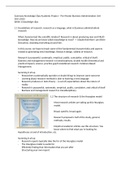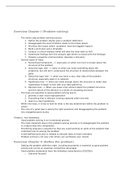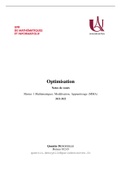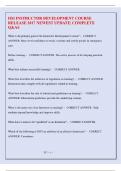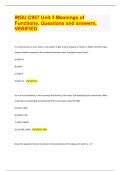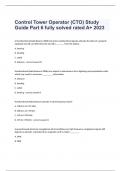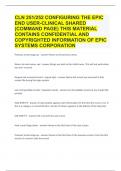Agent Based Modelling Lectures and Notes
SEN1211 – TU Delft
Q2, 2022-2023
“If you understand this figure, you understand everything in ABM” – Igor Nikolic
1
, Agent Based Modelling - SEN1211
Table of Contents
1. Theory Lectures ...................................................................................... 3
Lecture 1, 15-11-22, Course introduction ............................................................... 3
Lecture 1.2, 15-11-22, Introduction to Complexity .................................................. 3
Lecture 2.1, 17-11-22, Introduction to Agent based modelling ................................ 6
Lecture 2.2, 17-11-22, Emergence ....................................................................... 10
Lecture 3.1, 24-11-22, Observer Dependence ...................................................... 12
Lecture 3, 24-11-22, System Nestedness and scaling (2019 lecture) ..................... 15
Lecture 5.1+5.2, 01-12-22, Chaos and instability .................................................. 19
Lecture 6, 06-12-22, Path dependence ................................................................ 21
Lecture 7.1, 15-12-22, Evolution .......................................................................... 23
Lecture 7.2, 15-12-22, Self-organization ............................................................... 25
Extra Lectures ............................................................................................... 27
Lecture X: Complex Networks, Networks and Network Analysis ............................. 27
Lecture X: Robustness and resilience ......................................................................... 29
3. ABM lectures ......................................................................................... 31
Lecture 1, 29-11-22, ABM: Problem conceptualization .......................................... 31
Lecture 2, 06-12-22, ABM: Formalization .............................................................. 32
Lecture 8, 20-12-22, ABM: computational experiment design Part 1 and 2 (only
slides) ................................................................................................................. 32
Lecture 9.1+9.2, 22-12-22, ABM: Data analysis .................................................... 35
4. Recap questions ........................................................................................ 37
5. Key terms summary .................................................................................. 40
2
, Agent Based Modelling - SEN1211
1. Theory Lectures
Lecture 1, 15-11-22, Course introduction
Emergence is THE defining characteristic of complex adaptive systems (CAS), as an
epistemological vs ontological phenomenon. Followed by Observer Dependency and
Post Normal Science.
Lecture 1.2, 15-11-22, Introduction to Complexity
Key points:
• General understanding of (the history of) systems thinking and CAS
• Definitions of complexity:
o Mikulecky
o Waldorp
• Difference between complexity and complicatedness
System:
• Regularly interacting or interdependent group of items forming a unified whole
• Organised set of doctrines/ideas/principles usually intended to explain the
arrangement or working of a systematic whole
• Manner of classifying, symbolizing, schematizing
• Harmonious arrangement or pattern or order
• Linear system:
o Simple, predictable. It is a choice to express them this way.
o Often used as a proxy for more complicated systems because it’s easy to
calculate.
• Non-linear system:
o Non-proportional response to input
o Can be straightforward and predictable
• Nonlinear chaotic systems: some non-linear systems express chaotic
behaviour, which means they are extremely sensitive to initial conditions.
Simplicity:
• Functional simplicity: function and operation is simple, however the system
structure that provides this simple function is not. E.g. a light switch vs the
electricity grid.
• Structural simplicity: simplest possible structure is a whole, without internal
divisions or parts. The simpler the structure, the more functions (uses) it can
have. E.g. you can use a rock for many uses (as a hammer, weight, etc).
à more simple structure is more uses (rock), less simple structure has less
uses (car)
Complex vs complicated:
• Horizontal differentiation: elaboration of structure solves problems and then
moves on to the next problem, leaving the structure behind. It is a flat hierarchy.
Evolution makes it a complicated structure that is difficult to control, predict, or
mend. It causes horizontal differentiation.
o This is what caused the Roman empire to fail.
3
, Agent Based Modelling - SEN1211
• Vertical differentiation: elaboration of organization creates energy dissipative
far from equilibrium structures. It is a deep hierarchy. It causes a complex
structure with many levels. Behaviour becomes simple but energetic cost is
high. Emergence causes vertical differentiation. This is harder to engineer but
stronger in the end.
Complex systems operate at a high level, in such a way that e.g. in flight systems it’s
easy to switch flights. Technical complexity which can’t be shortcutted vs simple
function.
Complicated “is” (a state), while complex “is becoming” (a process).
An observer can decide whether something is simple or not.
- A wolf vs a pack: a wolf is still a wolf if you switch a patch of fur. But its
behaviour is still complex.
Properties of complex systems: observer dependency, diversity, robustness,
networks, information, emergence, self-similarity, randomness, order, adaptiveness,
chaos, non-linearity, path dependency, instability, evolution.
Why study CAS?
- Prediction – what’s going to happen;
- Patterns – what does it look like;
- Dynamics – where is it going;
- Control – how can I stop it, start it, steer it?
à for understanding CAS, it’s necessary to rethink these traditional ideas of
prediction, patterns, dynamics and control.
4

